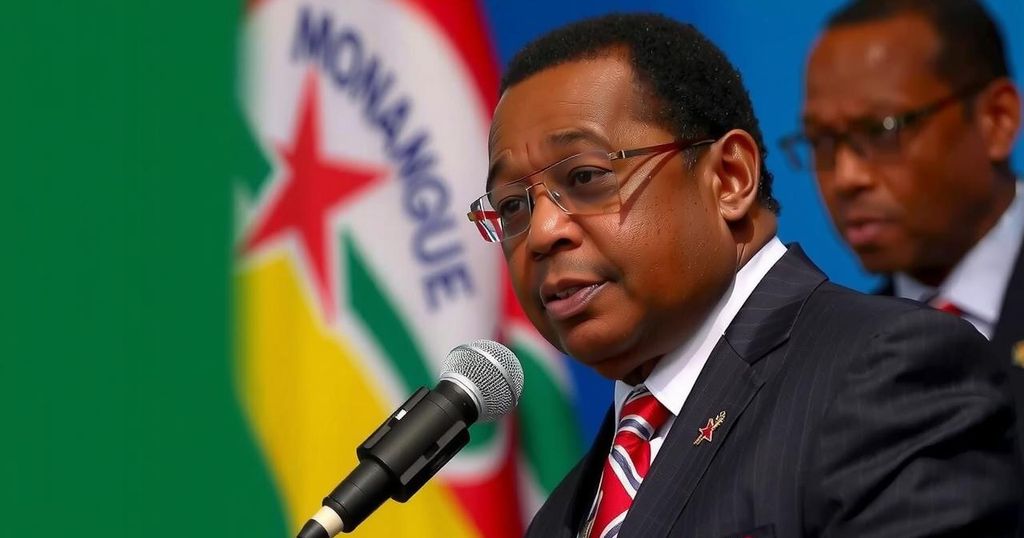Chapo Declared Winner Amidst Turmoil in Mozambique’s Presidential Election

Daniel Chapo of the Frelimo party has been declared the winner of Mozambique’s presidential election, claiming 71 percent of the vote amidst violence and accusations of fraud. Protests erupted following the election, with demonstrators alleging rigging and police violence. The Frelimo party denies these allegations, asserting that the electoral outcomes reflect the will of the citizens. This election poses significant challenges for Frelimo amid ongoing socioeconomic divides and unrest in the nation.
On Thursday, Mozambique’s electoral commission announced the victory of Daniel Chapo, the candidate from the longstanding Frelimo party, which has been in power since the nation gained independence nearly 50 years ago. He secured approximately 71 percent of the votes in the presidential election conducted on October 9, succeeding Filipe Nyusi, who has reached his term limit after two five-year terms. This election has been overshadowed by incidents of violence and serious allegations of electoral fraud. Following the election announcement, significant unrest erupted in the capital, Maputo, where police resorted to tear gas and gunfire during confrontations with demonstrators. The protests were sparked by claims that Frelimo manipulated the election results and was implicated in the fatal shooting of two supporters affiliated with Mr. Chapo’s main opponent. The Frelimo party has refuted all allegations of fraud and violence. Ludmila Maguni, a spokesperson for Frelimo, expressed in a communication to The New York Times that, “Frelimo is confident that the results reflect the will of the people.” This contentious election and the unrest surrounding it signify a crucial challenge for Frelimo, particularly in the context of prolonged instability within the nation, exacerbated by an insurgency in the northern region of Cabo Delgado. This ongoing conflict highlights the stark divide between those profiting from Mozambique’s rich natural resources and the numerous citizens facing persistent poverty and high unemployment rates.
Mozambique has experienced considerable turbulence in its political landscape since achieving independence from Portugal in 1975. The Frelimo party has been the ruling entity throughout this period, navigating complex challenges that include a civil war and ongoing social and economic disparities. The recent elections were intended to provide a democratic transition, yet the significant allegations of fraud and the violent reactions from opposition forces illustrate the fragility of the current political climate. The geographical disparity, particularly concerning the resource-rich Cabo Delgado region and the impoverished southern areas, presents continued challenges for equitable governance.
The recent presidential election in Mozambique appears to solidify the Frelimo party’s grip on power amid serious allegations of electoral misconduct and growing unrest among the populace. The elevated tensions following the election underscore the government’s precarious position as it confronts both internal dissent and external pressures related to ongoing conflicts. With the country still grappling with stark inequalities, the government will need to address these challenges to maintain legitimacy and stability moving forward.
Original Source: www.nytimes.com








